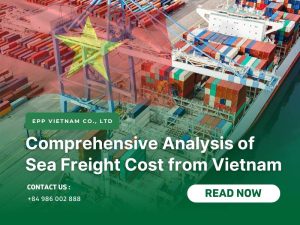
In recent years, global sea freight has undergone unprecedented volatility and transformation due to various factors such as politics, changing trade policies, and supply chain disruptions. Vietnam, as a rapidly
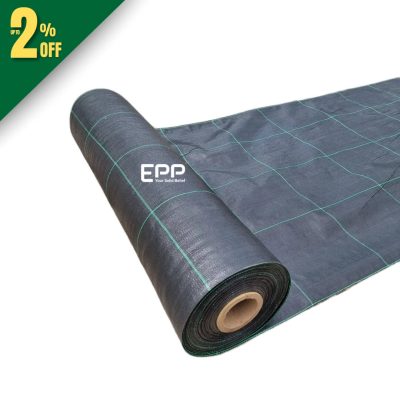
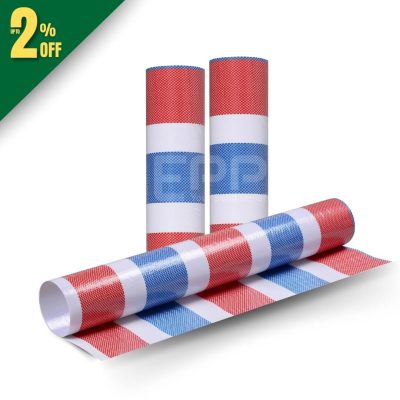
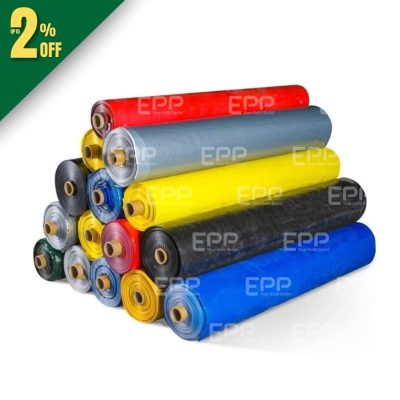
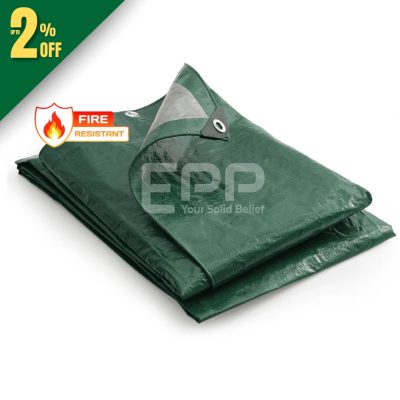
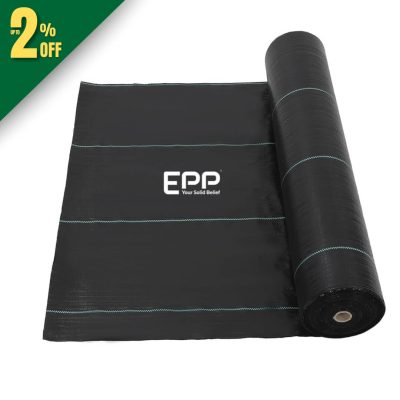
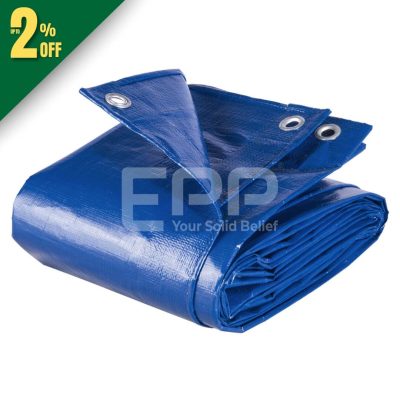

Woven fabric is an essential material in various industries, known for its strength, versatility, and durability. This fabric is primarily created through the interlacing of fibers, forming a sturdy textile that serves multiple purposes. Understanding woven fabric, its composition, and its applications can significantly benefit manufacturers, farmers, and consumers alike.
Woven fabric is produced by interlacing two or more sets of yarns at right angles, creating a textile that boasts remarkable strength and stability. The weaving process can be conducted using different methods, including circular looms or water jet looms, often utilizing the extrusion process of polypropylene (PP) or polyethylene (PE) resin. This construction allows woven fabric to maintain its shape and resist stretching, making it ideal for various applications.
Woven fabrics are not only durable but also offer a range of textures and appearances, depending on the yarns used and the weaving technique. This variety allows for customization in both functionality and aesthetics, making woven fabric suitable for a wide array of products.
Woven fabric is commonly made from synthetic materials, primarily polypropylene (PP) and polyethylene (PE). These materials are chosen for their unique properties, which contribute to the fabric’s overall performance:
By using these materials, woven fabrics can offer long-lasting performance, making them an ideal choice for various industries.
Woven fabric is extremely versatile and can be used in numerous applications. Here are some common uses:
Woven fabric is extensively used in the production of packaging materials, particularly bulk bags and polypropylene (PP) woven bags. These bags are designed to hold heavy loads, making them ideal for industries such as agriculture, construction, and food processing. The strength and durability of woven fabric ensure that it can withstand the rigors of transportation and handling.
PP woven bags are especially beneficial because they are resistant to moisture and chemicals, ensuring that the contents remain secure during transport. Additionally, these bags can be customized in terms of size, color, and branding, allowing businesses to enhance their visibility while providing reliable packaging solutions.
Woven fabric serves a critical role in agriculture, particularly as weed barriers. Agricultural woven fabric is designed to suppress weed growth while allowing air and water to reach the soil. This type of fabric is commonly used in gardens, landscaping, and crop production to improve yield and reduce the need for chemical herbicides.
The breathable nature of woven agricultural fabric helps maintain soil temperature and moisture levels, promoting healthier plant growth. By using woven fabric as a weed barrier, farmers can effectively manage their crops while minimizing environmental impact.
In industrial applications, woven fabric is utilized for protective coverings, such as polyethylene tarps (PE tarps). These tarps are made from woven polypropylene and are designed to withstand harsh weather conditions, making them ideal for covering equipment, materials, and construction sites.
Woven PE tarps are resistant to UV rays, water, and chemicals, providing excellent protection against the elements. Their durability and lightweight nature make them easy to handle and transport, making them a favorite choice for contractors and industrial workers.
Woven fabric is also widely used in construction and landscaping applications. For instance, it serves as ground cover to prevent erosion, protect seedling growth, and stabilize soil. Additionally, woven fabric can be used to create temporary barriers or enclosures on construction sites, ensuring safety and organization.
Woven fabric is a highly durable and versatile material that plays a crucial role in various applications, from packaging to construction. Its strength, resistance to moisture, and customizable nature make it an ideal choice for businesses and individuals alike. By understanding the characteristics and benefits of fabric, you can make informed decisions for your projects.
Whether you’re looking for reliable packaging solutions like bulk bags, agricultural applications such as weed barriers, or protective coverings for industrial use, woven fabric offers cost-effective and efficient solutions. As industries continue to evolve, the importance of woven fabric will remain significant, providing strength, durability, and functionality across diverse sectors. Investing in high-quality woven fabric can enhance productivity and sustainability in your operations, ensuring that you stay ahead in today’s competitive market.

With our 20-year experience in manufacturing and exporting, EPP Vietnam Co., Ltd. was established to bridge the gap between manufacturers and customers and become a leading supplier in Vietnam’s plastic packaging industry. Our mission is to provide a comprehensive range of plastic packaging products, including FIBCs (Types A, B, C, D, Fras Type C bulk bags, Food Grade bulk bags, UN big bags, Ventilated bulk bags, and Mesh bags), PP woven bags, Kraft paper laminated PP woven bags, BOPP bags, agricultural films, PE liners, and PE tarpaulin.
We have successfully exported high-quality products to markets in Australia, New Zealand, the United States, Canada, Germany, Norway, Portugal, Africa, UAE, Chile, and other countries with Stable quality, Competitive prices, and Professional services.
EPP Vietnam can currently supply 6 million products annually, underscoring our commitment to meeting customer needs.
With a quality management system according to internaional standard such as ISO9001:2015; ISO14001:2015; ISO22000:2005, HACCP; FSSC22000; BRC; Test Report for each product....and our professional quality check team, we are committed to bring to our customers outstanding products with “Stable Quality”.
With the products control norm system and having good relationships with manufacturers, we can seek for each factories’s advantageous products and combine them to meet customers' product diversification needs for each order with “Competitive Price”.
We guarantee to providing customers with “ Professional Service” such as: Consulting on exact product specifications, Quoting within one working day, Maximum leading time of four weeks for each order, Shiping to customer’s port, Diverse payment methods (TTR, L/C...); Resolve complaints within one week working and always listen to customers’ feedback.
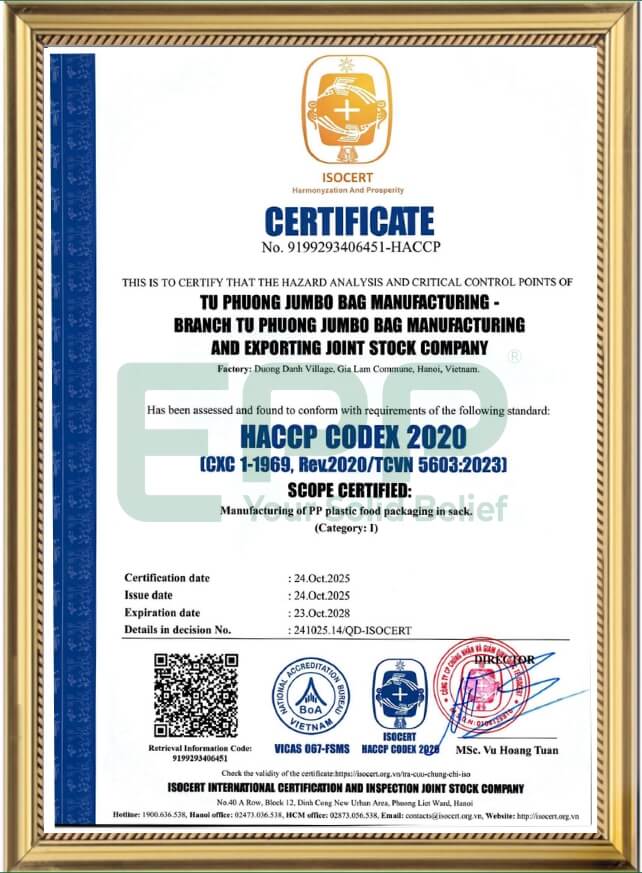
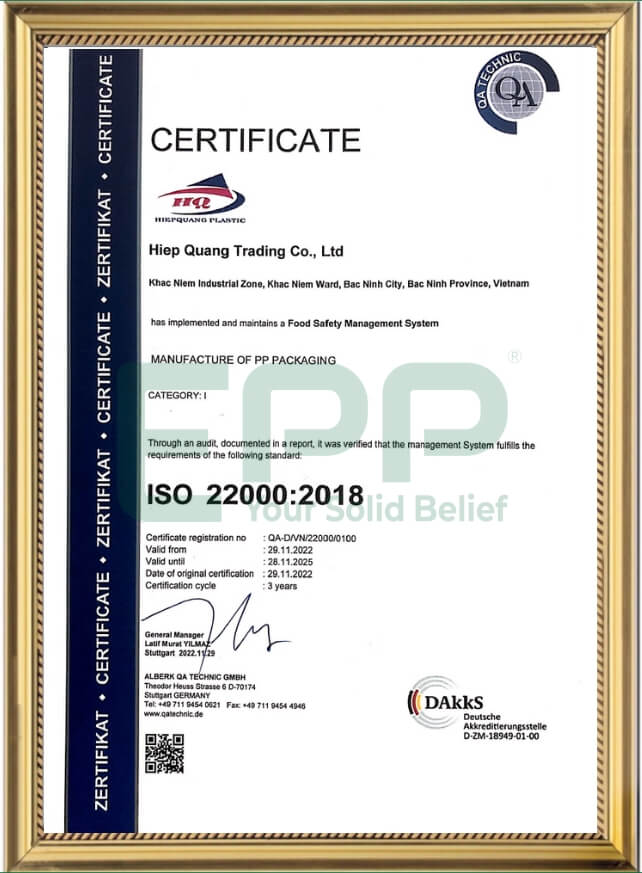
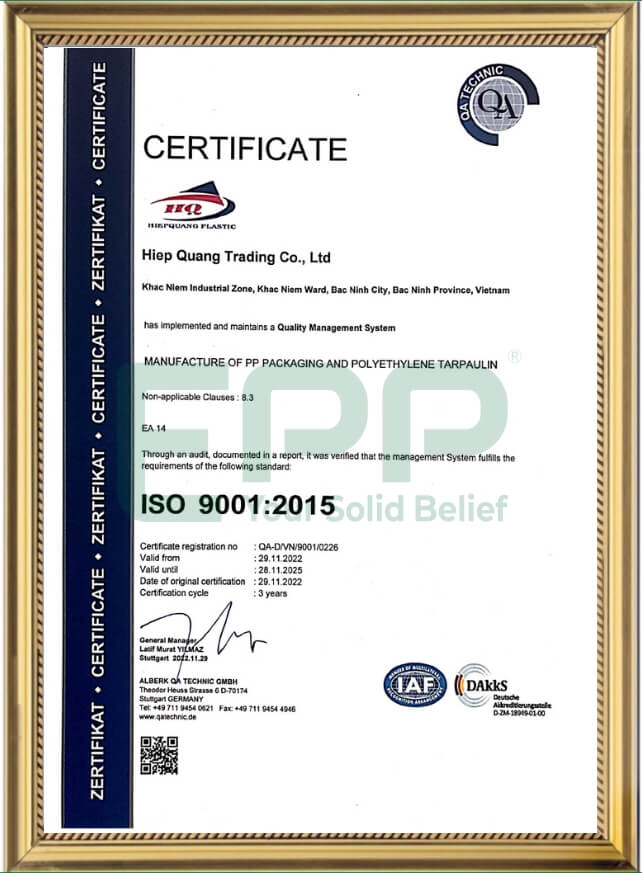

In recent years, global sea freight has undergone unprecedented volatility and transformation due to various factors such as politics, changing trade policies, and supply chain disruptions. Vietnam, as a rapidly
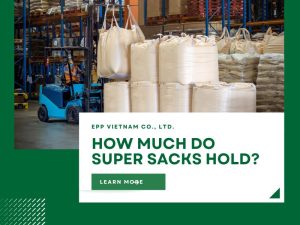
If you handle bulk materials—from fine chemicals and fertilizers to sand and grains—you rely on Super Sacks (officially, Flexible Intermediate Bulk Containers or FIBCs). These industrial bags are designed for

In the food industry, reputation and safety are everything. One illness outbreak can close a business, trigger massive recalls, and permanently destroy consumer trust. This is why the Hazard Analysis